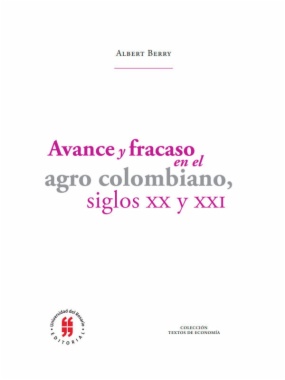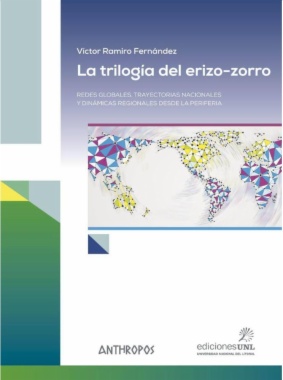
Estás filtrando por
Se encontraron 3385 resultados en recursos

Compartir este contenido
Avance y fracaso en el agro colombiano, siglos XX y XXI
Copia el enlace o compártelo en redes sociales

Turismo de salud
Compartir este contenido
Turismo de salud
Copia el enlace o compártelo en redes sociales

La trilogía del erizo-zorro: redes globales, trayectorias nacionales y dinámicas regionales desde la periferia
Compartir este contenido
La trilogía del erizo-zorro: redes globales, trayectorias nacionales y dinámicas regionales desde la periferia
Copia el enlace o compártelo en redes sociales

Eventos y protocolo
Compartir este contenido
Eventos y protocolo
Copia el enlace o compártelo en redes sociales
It Takes Two to Tango: The Effects of State Intervention and Institutions on Economic Growth and Inequality = Se necesitan dos para bailar tango: los efectos de la intervención estatal y las instituciones en el desarrollo económico y desigualdad
Compartir este contenido
It Takes Two to Tango: The Effects of State Intervention and Institutions on Economic Growth and Inequality = Se necesitan dos para bailar tango: los efectos de la intervención estatal y las instituciones en el desarrollo económico y desigualdad
Copia el enlace o compártelo en redes sociales
Inflation inequality by gender in the UK
Compartir este contenido
Inflation inequality by gender in the UK
Copia el enlace o compártelo en redes sociales
Green extractivism in Chile: The case of lithium mining in the Salar de Atacama
Compartir este contenido
Green extractivism in Chile: The case of lithium mining in the Salar de Atacama
Copia el enlace o compártelo en redes sociales
Lithium extractivism: perpetuating historical asymmetries in the ‘Green economy’
Compartir este contenido
Lithium extractivism: perpetuating historical asymmetries in the ‘Green economy’
Copia el enlace o compártelo en redes sociales
Contributing from Afar: The Case of Sudanese and Venezuelan Diaspora Organisations in the Humanitarian Crises of their Countries of Origin
Compartir este contenido
Contributing from Afar: The Case of Sudanese and Venezuelan Diaspora Organisations in the Humanitarian Crises of their Countries of Origin
Copia el enlace o compártelo en redes sociales
Bonds and Loans: Study of the Funding Decision for Colombia's private sector - Bonos y Préstamos: Estudio sobre la Decisión de Financiamiento para el Sector Privado en Colombia
Compartir este contenido
Bonds and Loans: Study of the Funding Decision for Colombia's private sector - Bonos y Préstamos: Estudio sobre la Decisión de Financiamiento para el Sector Privado en Colombia
Copia el enlace o compártelo en redes sociales
Selecciona las Colecciones en las que vas a añadir el contenido
Para consultar los contenidos añadidos busca la opción Tus colecciones en el menú principal o en Mi perfil.
